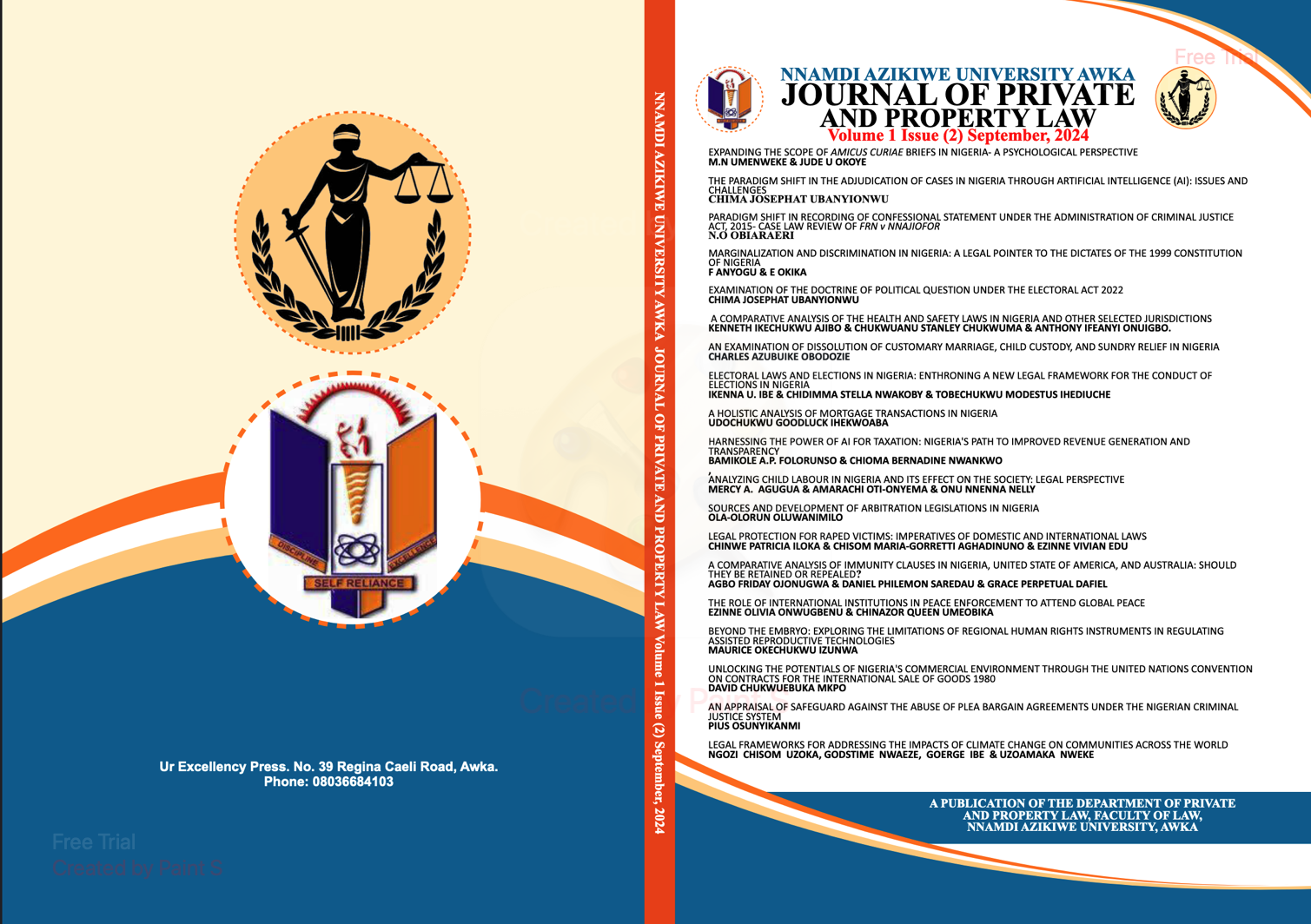BEYOND THE EMBRYO: EXPLORING THE LIMITATIONS OF REGIONAL HUMAN RIGHTS INSTRUMENTS IN REGULATING ASSISTED REPRODUCTIVE TECHNOLOGIES
Abstract
This study examines the limitations of regional human rights instruments in protecting the rights and
dignity of embryos in Assisted Reproductive Technologies (ART), while also considering the implications
for other stakeholders. The research objectives are to identify the gaps and constraints in existing
regional instruments regarding embryo protection, examine the impact on embryo rights and dignity, and
propose recommendations for improvement. A comparative analysis of major regional human rights
instruments was conducted, supplemented by a review of relevant case law and expert interviews. The
findings reveal significant limitations, including inadequate protection for embryos and inconsistent
application of rights and dignity principles. The study recommends strengthening embryo protection,
clarifying ambiguous language, and ensuring inclusive and participatory processes that balance embryo
rights with those of other stakeholders, including women, men, and children. By addressing these
limitations, regional human rights instruments can better protect the rights and dignity of embryos and
promote a more equitable and just framework for reproductive technologies.

